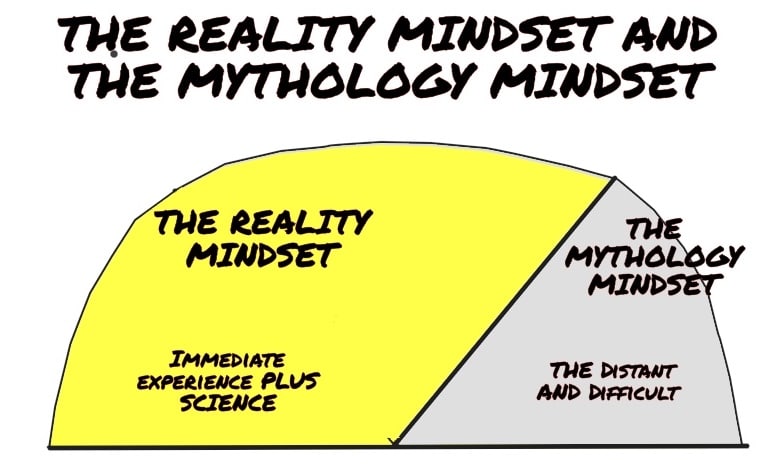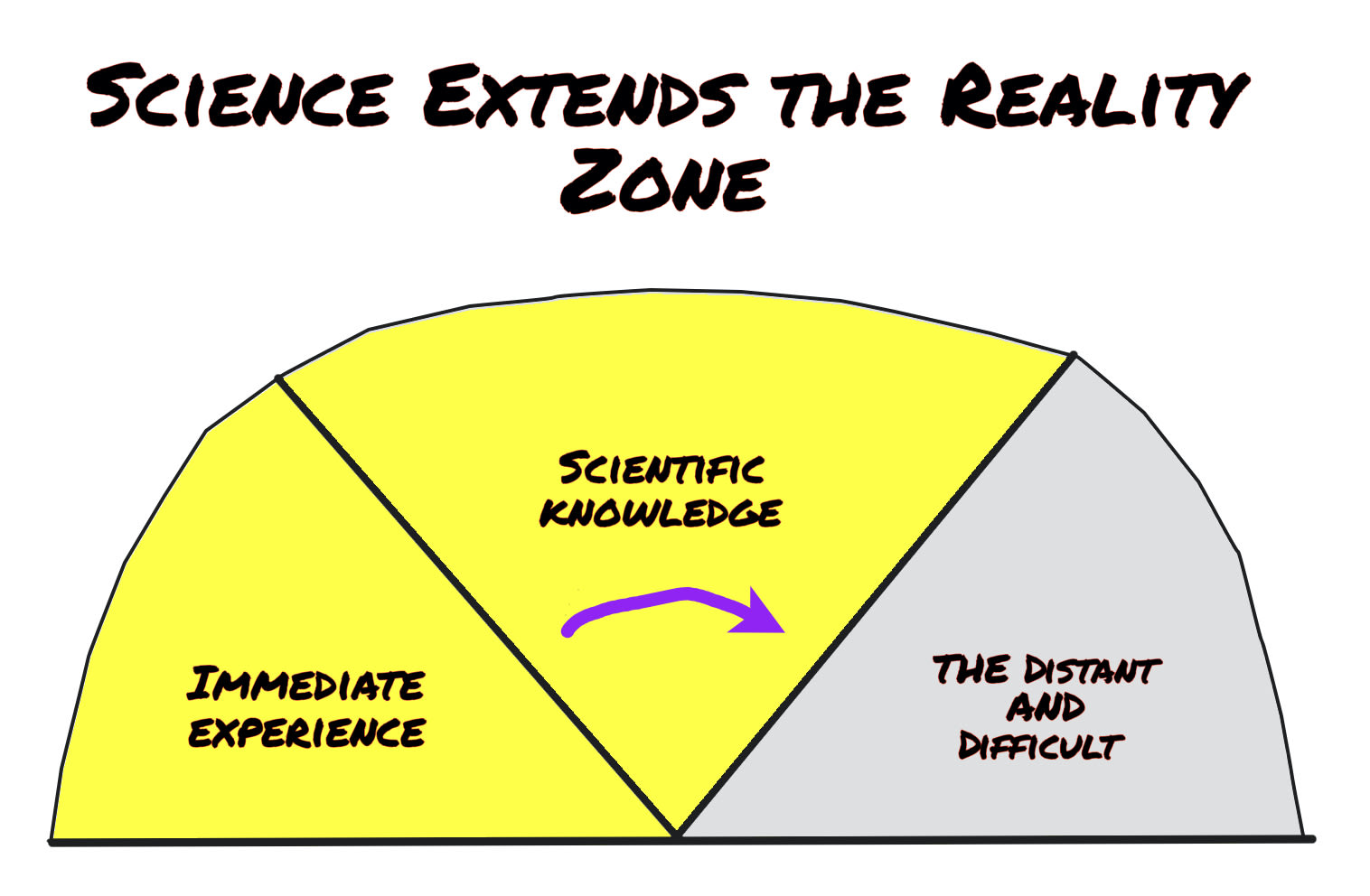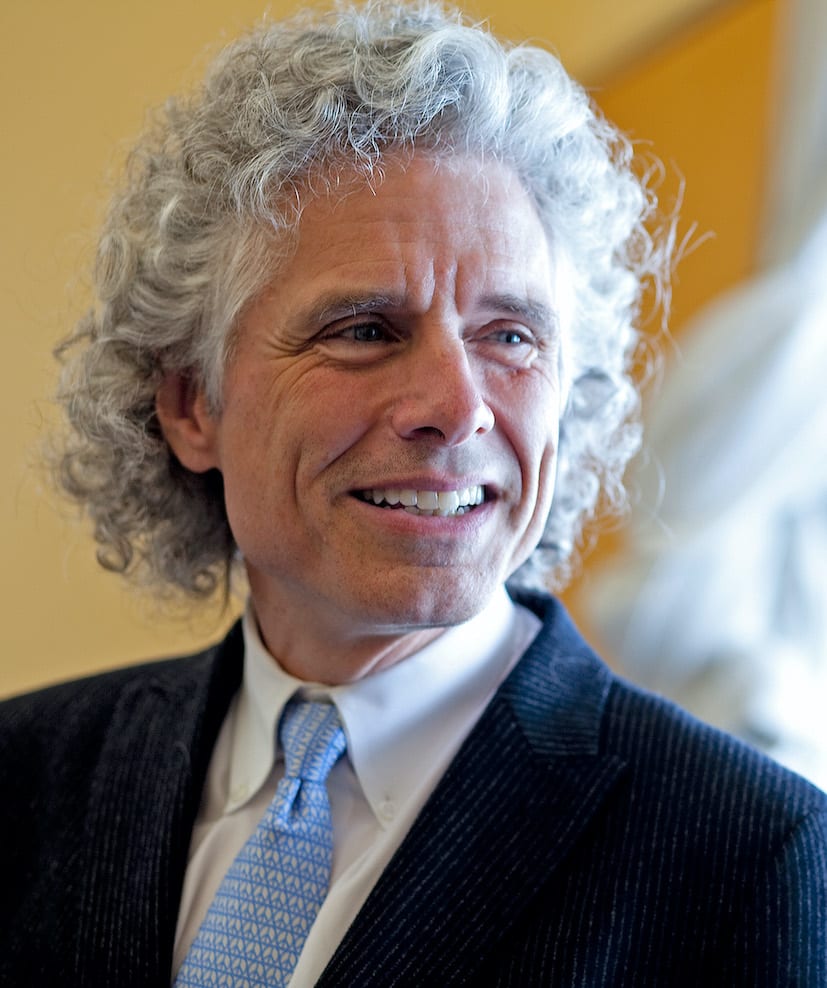There is a distinction that Steven Pinker introduces in his book ‘Rationality’ that I have found very valuable, and which deserves to be better known by Effective Altruists.
Two Zones
He makes a division between two zones. One is the ‘Reality Mindset’, where we have accurate beliefs and reason rationally. This is the world of everyday experience, which we need to understand and to deal with sensibly to survive. But for the zone beyond immediate experience, worlds far away or hard to comprehend, that we do not know about and do not need to know about, we may use a ‘Mythology Mindset’, and create narratives to cover our ignorance.

The Mythology Mindset runs deep in human nature. Historically, little beyond immediate experience was understood and we evolved to tell stories to manage our thinking about the unknown. Magic, gods and tribal myths arose, providing comfort and social cohesion. Science and reason have expanded the reality zone, but rational thinking remains demanding and unnatural for us. We can be creatures who prefer good stories to hard truths.
The Reality Mindset is partly about moving on from supernatural beliefs to a naturalist worldview. So, gods, spirits and superstitions go. So does a purposeful universe, objective morality, mind-body dualism and life after death. But the Reality Mindset goes further. It is against all lazy myths, including dangerous ones about politics and nations.

Politics illustrates the reality-mythology divide. The reality ideal is to find and implement the best policies for the common good. But many people recognise that they can neither understand nor influence the political world. They can therefore place politics into the mythology zone, treat it as entertainment and cheer on a side.
Beliefs have different natures in the two zones. In the reality zone, beliefs should match reality and be supported by evidence. By contrast, mythology zone beliefs are about stories, so truth and evidence are beside the point. The religious don’t want to know about the worldly origins of their sacred texts, nationalists ignore the bad parts of their national histories. People believe in gods, nations and political parties, but not as they believe in things they directly experience. Apparent widespread irrationality may be due to people adopting the Mythology Mindset for things they do not need to understand.
Reason
What is this ‘reason’ that divides the two zones? The verb ‘reasoning’ means to think something through. ‘Reason’, the abstract noun, refers to the most effective collective or individual thinking available. As such, reason’s requirements are always subject to debate, and reason itself can be scrutinized and improved through further application of reason. Reason advances, and to ‘use reason’ is to use the best thinking currently available to understand what is (theoretical reason) and what to do (practical reason). It should not be controversial: to use reason is just to use the best resources available to understand.
But good reason knows its limits. It knows that reasoning is effortful, so it only need be used where the benefit exceeds the cost. Reason knows that there is more to life than reason and that it should not crowd out love, art and joy. And reason accepts that rather than evaluating individual decisions, it is often better to use heuristics or societal rules. These are all places where it is sensible to stop reasoning. But placing appropriate limits on reason is itself an application of reason: it is really reason all the way down.
There is a seriousness about the Reality Mindset. It is the view that if something matters it is worth thinking about properly. It will research, do the maths and try to overcome biases. It is effortful rather than lazy.
The Rationality Project
Pinker says: ‘We children of the Enlightenment embrace the radical creed of universal realism: we hold that all our beliefs should fall within the reality mindset.’ This can, indeed, be seen as the rationality project: to apply reason universally. Those at the radical vanguard of rationalism include philosophers arguing against deep instincts, researchers into biases, and effective altruists applying reason to the big questions about what to do.

The rationality project takes comfort from the historic successes of reason and believes that reason is our best hope for the future. It is confident that theoretical and practical understanding will be amenable to reason. It reflects a psychology that in its better moments prefers knowledge and good outcomes to ease, instincts and comforting stories. But above all, the rationality project is simply about making the effort to think.
Reference
Pinker, Steven. Rationality: What It Is, Why It Seems Scarce, Why It Matters (2021). The discussion of the Reality Mindset is on pages 298 to 303.
Cross posted from my website.
